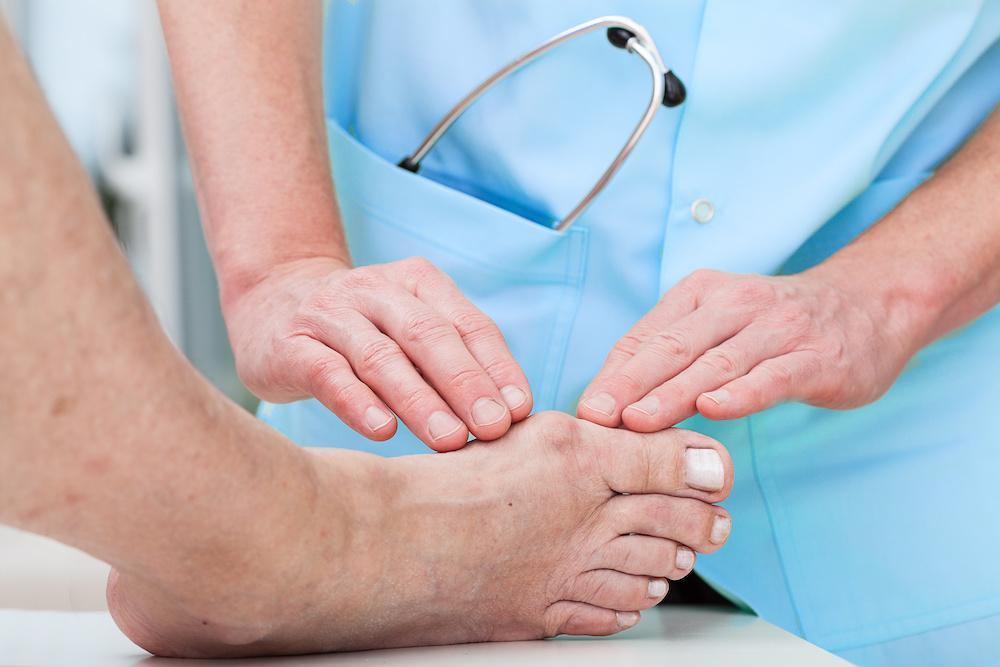
How Athletes Can Protect Their Feet During Activity

Physical activity is a great way to stay on top of your game when you're an athlete. If you're not careful, you can hurt yourself and your feet.
Foot sprains and stress fractures are common injuries you can experience when you're an athlete. The Sports Medicine Associates of San Antonio team can help if you're concerned about your foot health.
Dr. Marque A. Allen is an expert podiatrist and foot and ankle surgeon. If you have a foot injury, Dr. Allen provides fast and efficient treatment to get you back on the field.
Common foot injuries
Sports injuries come in various forms — fractures, tendon injuries, and muscle sprains. These injuries can occur anywhere in your body, including your feet.
Most sports require a significant amount of stress on your legs and feet. Running, jumping, and cross-training are the primary causes of injury to your feet and ankles.
Several sports require you to use your feet a lot. Basketball exerts tremendous pressure on your feet as you run and jump. Soccer and football both mean running and quick stops and starts, all leading to injury.
When you play a sport, you're at risk for a variety of foot injuries which include:
Sprains
A foot sprain is an injury that involves the ligaments in your feet. These are fibrous bands of tissue that keep your bones in alignment.
A sprain happens when these ligaments are torn or over-extended. The sprain causes pain, swelling, and tenderness in the affected foot.
Stress fractures
Stress fractures happen when the muscles in your foot are over-exerted, causing more stress on your bones. The pressure leads to tiny cracks in the bones, causing fractures.
Overdoing it in sports like basketball and running can lead to stress fractures in your foot.
Heel spurs
A heel spur happens when deposits of calcium collect in your heel bone. The spurs put pressure on your plantar fascia, leading to pain in the arch of your foot and sometimes your heel.
Plantar fasciitis
High-impact activities like running can lead to plantar fasciitis. You'll notice pain in the bottom of your foot where your plantar fascia is located. It's caused by inflammation in this strong band of tissue, often from overuse.
Neuromas and injuries to your ankles are also common during sports activity. Dr. Allen and the team help you keep your feet healthy with a few easy steps.
Tips to protect your feet
You shouldn't always be worried about injuries when you're involved in sports. You should, however, be aware of the stress you're putting your body through, especially your feet. That takes the fun out of the game.
You must take care of your feet when you're involved in physical activity and sports. To prevent injuries, you must take the following steps:
Invest in good shoes
Your shoes are one of the most critical aspects of your uniform. Getting fitted for properly sized shoes with plenty of arch support is key to preventing injuries in your feet.
It's also crucial to get rid of your shoes when they're worn. Old shoes don't give enough support, which adds extra stress to your feet.
Stretch your feet
Stretching is a vital part of physical activity before and after your sport. Stretching helps to loosen your muscles and ligaments, which takes undo stress off of them. Blood flow is also increased to your tissues when you stretch, helping you avoid injury.
Warm up before activity
Warming up before going onto the court or field improves blood flow to your whole body, which decreases your risk of injury. Warming up includes a light jog and stretching, among other low-impact activities.
Avoid uneven surfaces
Running or stepping on uneven surfaces increases the strain on the bones and ligaments in your feet. When running, stay on the same surface and avoid changing, as it adds stress to your feet and leads to sprains and stress fractures.
To get help for your foot injury today, call the Sports Medicine Associates of San Antonio today at one of our convenient locations in Texas. You can also request an appointment with Dr. Allen on our website.
You Might Also Enjoy...


What Can Lapiplasty® Fix?

4 Tips For Running With Achilles Tendonitis

Ankle Sprain vs Fracture: How to Spot the Difference

Will Plantar Fasciitis Go Away on Its Own?


